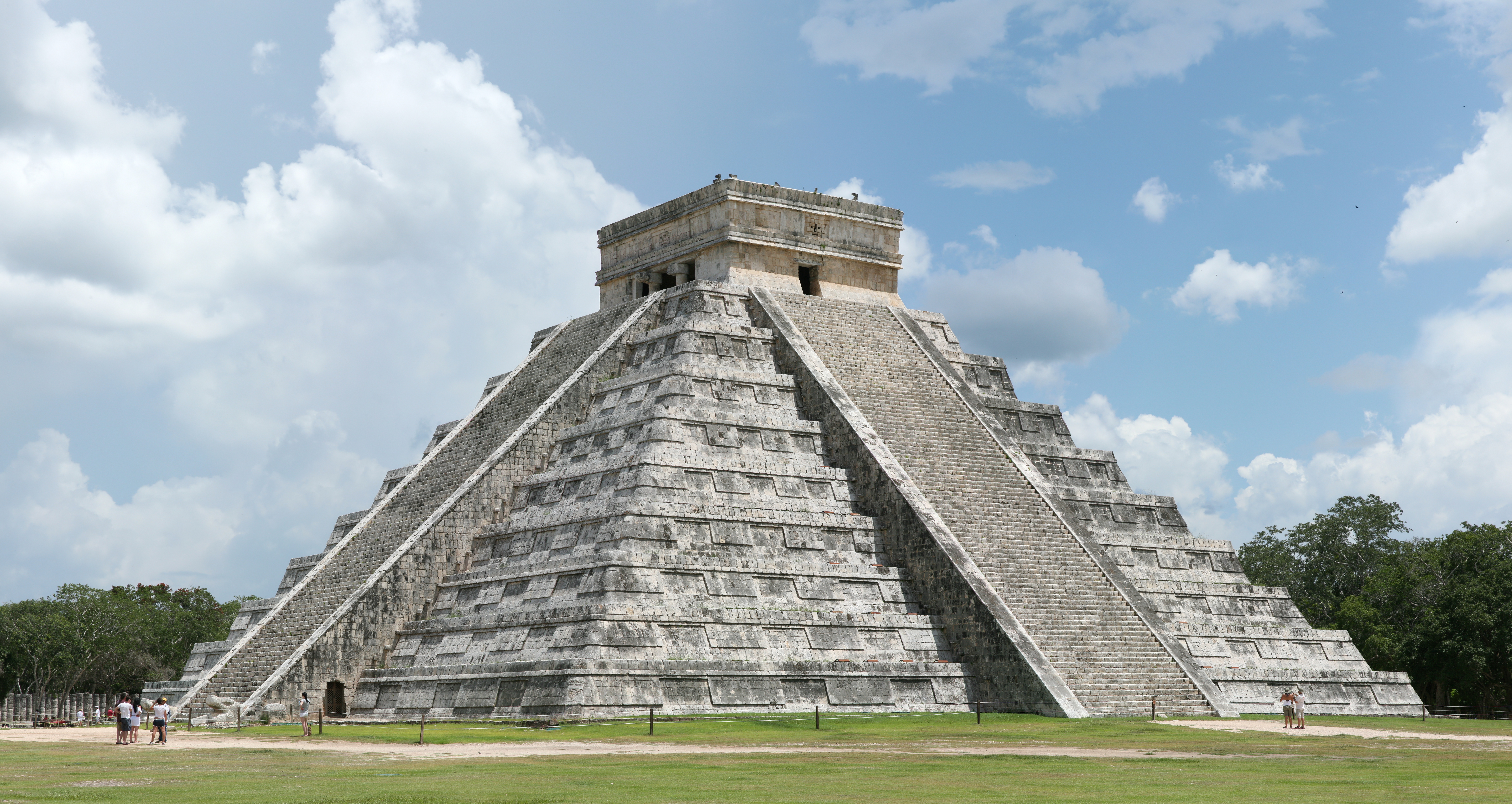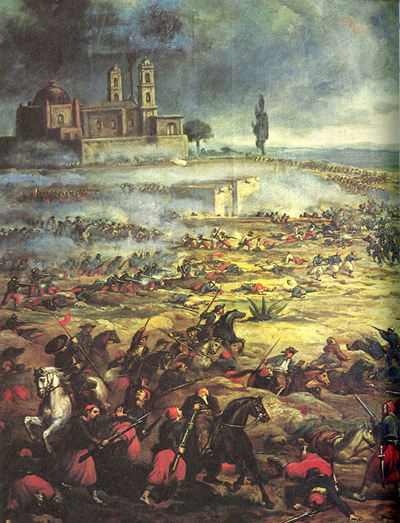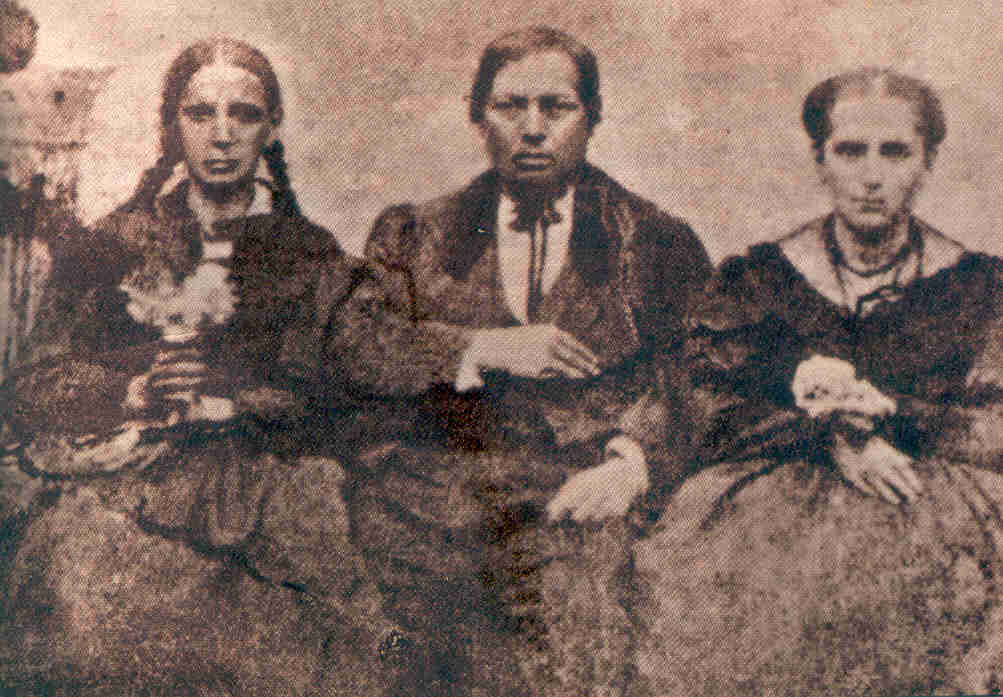|
Third Battle Of Puebla
The Battle of 2 de Abril was fought on April 2, 1867, in and around the city of Puebla, Puebla. It was one of the major military actions in the Franco-Mexican War between elements of the Mexican Army of the Republic commanded by General Porfirio Díaz and troops in the service of the Mexican Empire composed of Mexican imperialist soldiers. The campaign of Puebla includes the siege of Puebla, the battle of April 2, and the capture of the forts of Loreto and Guadalupe. The battle, also known as the ''Third Battle of Puebla'', was the end of a siege on the city of Puebla which started on March 9 of the same year. Despite its being one of the major campaigns in the war of intervention, the number of casualties was low due to the decision of Porfirio Díaz not to execute all the prisoners but instead release most of them under a signed promise that they would not take up arms again against the republic. The capture of Puebla was a huge defeat for the imperialists and was decisive ... [...More Info...] [...Related Items...] OR: [Wikipedia] [Google] [Baidu] |
Second French Intervention In Mexico
The Second French Intervention in Mexico ( es, Segunda intervención francesa en México), also known as the Second Franco-Mexican War (1861–1867), was an invasion of Mexico, launched in late 1862 by the Second French Empire, which hoped to replace the Mexican Republic with a monarchy favorable to French interests. After the administration of President of Mexico, Mexican President Benito Juárez placed a moratorium on foreign debt payments in 1861, France, the United Kingdom, and Spain agreed to the Convention of London (1861), Convention of London, a joint effort to ensure that debt repayments from Mexico would be forthcoming. On 8 December 1861, the three navies disembarked their troops at the port city of Veracruz (city), Veracruz, on the Gulf of Mexico. However, when the British discovered that France had an ulterior motive and unilaterally planned to seize Mexico, the United Kingdom separately negotiated an agreement with Mexico to settle the debt issues and withdrew fro ... [...More Info...] [...Related Items...] OR: [Wikipedia] [Google] [Baidu] |
Siege Of Querétaro
The siege of Querétaro was the culminating battle of the Second French intervention in Mexico and the Second Mexican Empire. It took place between Republican and Imperial armies from 6 March to 15 May 1867. After the French departed, the remaining Imperial forces were concentrated in the center of the country. Maximilian I of Mexico, Emperor Maximilian decided to head to the Querétaro City, city of Querétaro, while a remaining force was left at the capital. Republican forces arrived at Querétaro on 5 March, after which the siege began. The imperialists held off and won some skirmishes, before the increasing Republican forces made them contemplate an attempt at breaking the lines and heading for the coast. This plan was thwarted however, when Miguel López (military officer), Miguel López opened the gates of the town to the enemy, after which the imperialists were overwhelmed. Maximilian and his generals were captured, tried, and condemned to death. He was executed by firing ... [...More Info...] [...Related Items...] OR: [Wikipedia] [Google] [Baidu] |
Battles Of The Second French Intervention In Mexico
A battle is an occurrence of combat in warfare between opposing military units of any number or size. A war usually consists of multiple battles. In general, a battle is a military engagement that is well defined in duration, area, and force commitment. An engagement with only limited commitment between the forces and without decisive results is sometimes called a skirmish. The word "battle" can also be used infrequently to refer to an entire operational campaign, although this usage greatly diverges from its conventional or customary meaning. Generally, the word "battle" is used for such campaigns if referring to a protracted combat encounter in which either one or both of the combatants had the same methods, resources, and strategic objectives throughout the encounter. Some prominent examples of this would be the Battle of the Atlantic, Battle of Britain, and Battle of Stalingrad, all in World War II. Wars and military campaigns are guided by military strategy, whereas bat ... [...More Info...] [...Related Items...] OR: [Wikipedia] [Google] [Baidu] |
Battles Involving France
A battle is an occurrence of combat in warfare between opposing military units of any number or size. A war usually consists of multiple battles. In general, a battle is a military engagement that is well defined in duration, area, and force commitment. An engagement with only limited commitment between the forces and without decisive results is sometimes called a skirmish. The word "battle" can also be used infrequently to refer to an entire operational campaign, although this usage greatly diverges from its conventional or customary meaning. Generally, the word "battle" is used for such campaigns if referring to a protracted combat encounter in which either one or both of the combatants had the same methods, resources, and strategic objectives throughout the encounter. Some prominent examples of this would be the Battle of the Atlantic, Battle of Britain, and Battle of Stalingrad, all in World War II. Wars and military campaigns are guided by military strategy, whereas bat ... [...More Info...] [...Related Items...] OR: [Wikipedia] [Google] [Baidu] |
April 1867 Events
April is the fourth month of the year in the Gregorian and Julian calendars. It is the first of four months to have a length of 30 days, and the second of five months to have a length of less than 31 days. April is commonly associated with the season of autumn in parts of the Southern Hemisphere, and spring in parts of the Northern Hemisphere, where it is the seasonal equivalent to October in the Southern Hemisphere and vice versa. History The Romans gave this month the Latin name ''Aprilis''"April" in ''Chambers's Encyclopædia''. London: George Newnes, 1961, Vol. 1, p. 497. but the derivation of this name is uncertain. The traditional etymology is from the verb ''aperire'', "to open", in allusion to its being the season when trees and flowers begin to "open", which is supported by comparison with the modern Greek use of άνοιξη (''ánixi'') (opening) for spring. Since some of the Roman months were named in honor of divinities, and as April was sacred ... [...More Info...] [...Related Items...] OR: [Wikipedia] [Google] [Baidu] |
1867 In The French Colonial Empire
Events January–March * January 1 – The Covington–Cincinnati Suspension Bridge opens between Cincinnati, Ohio, and Covington, Kentucky, in the United States, becoming the longest single-span bridge in the world. It was renamed after its designer, John A. Roebling, in 1983. * January 8 – African-American men are granted the right to vote in the District of Columbia. * January 11 – Benito Juárez becomes Mexican president again. * January 30 – Emperor Kōmei of Japan dies suddenly, age 36, leaving his 14-year-old son to succeed as Emperor Meiji. * January 31 – Maronite nationalist leader Youssef Bey Karam leaves Lebanon aboard a French ship for Algeria. * February 3 – ''Shōgun'' Tokugawa Yoshinobu abdicates, and the late Emperor Kōmei's son, Prince Mutsuhito, becomes Emperor Meiji of Japan in a brief ceremony in Kyoto, ending the Late Tokugawa shogunate. * February 7 – West Virginia University is established in Morgantown, West Virginia. * February 13 ... [...More Info...] [...Related Items...] OR: [Wikipedia] [Google] [Baidu] |
1867 In Mexico
Events in the year 1867 in Mexico. Incumbents * President: Benito Juárez * Archbishop of Mexico: Pelagio Antonio de Labastida y Dávalos Governors * Aguascalientes: Jesús Gómez Portugal * Campeche: Pablo García Montilla * Chiapas: * Chihuahua: * Coahuila: * Colima: José Maria Mendoza/ Ramón R. De la Vega * Durango: * Guanajuato: * Guerrero: * Jalisco: * State of Mexico: * Michoacán: * Nuevo León: Manuel Z. Gómez/Jerónimo Treviño * Oaxaca: * Puebla: * Querétaro: Manuel Domínguez y Quintanar/ Julio M. Cervantes * San Luis Potosí: * Sinaloa: * Sonora: * Tabasco: * Tamaulipas: * Veracruz: * Yucatán: * Zacatecas: Events * January 11 – Benito Juárez becomes Mexican president again in an era called the Restored Republic. * April 2 – Third Battle of Puebla * June 19 – A firing squad executes Emperor Maximilian of Mexico. Births Notable deaths * June 19 **Maximilian I of Mexico, 2nd emperor of Mexico, 1864-1867; executed (b. 1832) **T ... [...More Info...] [...Related Items...] OR: [Wikipedia] [Google] [Baidu] |
History Of Mexico
The written history of Mexico spans more than three millennia. First populated more than 13,000 years ago, central and southern Mexico (termed Mesoamerica) saw the rise and fall of complex indigenous peoples of Mexico, indigenous civilizations. Mexico would later develop into a unique multicultural society. Mesoamerican civilizations developed glyphic Mesoamerican writing systems, writing systems, recording the political history of conquests and rulers. Mesoamerican history prior to European arrival is called the prehispanic era or the pre-Columbian era. Following Mexican War of Independence, Mexico's independence from Spain in 1821, political turmoil wracked the nation. France, with the help of Mexican conservatives, seized control in the 1860s during the Second Mexican Empire, but was later defeated. Quiet prosperous growth was characteristic in the late 19th century but the Mexican Revolution in 1910 brought a bitter civil war. With calm restored in the 1920s, economic growth ... [...More Info...] [...Related Items...] OR: [Wikipedia] [Google] [Baidu] |
Battle Of Puebla
The Battle of Puebla ( es, Batalla de Puebla; french: Bataille de Puebla) took place on 5 May, Cinco de Mayo, 1862, near Puebla de Zaragoza during the Second French intervention in Mexico. French troops under the command of Charles de Lorencez repeatedly failed to storm the forts of Loreto and Guadalupe situated on top of the hills overlooking the city of Puebla, and eventually retreated to Orizaba in order to await reinforcements. Lorencez was dismissed from his command, and French troops under Élie Frédéric Forey would eventually take the city, but the Mexican victory at Puebla against a better equippedThe following sources are mentioning that Zaragoza was heading 12,000 troops : seThe Cinco de Mayo and French Imperialism– Hicks, Peter, Fondation Napoléon, and General Gustave Léon Niox book, ''Expédition du Mexique : 1861–1867'', published in 1874 by Librairie militaire de J. Dumaine, p. 16Read online/ref> force provided patriotic inspiration to the Mexicans. The ann ... [...More Info...] [...Related Items...] OR: [Wikipedia] [Google] [Baidu] |
Benito Juárez
Benito Pablo Juárez García (; 21 March 1806 – 18 July 1872) was a Liberalism in Mexico, Mexican liberal politician and lawyer who served as the 26th president of Mexico from 1858 until his death in office in 1872. As a Zapotec peoples, Zapotec, he was the first Indigenous peoples of Mexico, indigenous president of Mexico and the first indigenous head of state in the postcolonial Americas. Born in Oaxaca to a poor rural family and orphaned as a child, Juárez was looked after by his uncle and eventually moved to Oaxaca City at the age of 12, working as a domestic servant. Aided by a lay Franciscan, he enrolled in a seminary and studied law at the Benito Juárez Autonomous University of Oaxaca, Institute of Sciences and Arts, where he became active in liberal politics. After his appointment as a judge, he married Margarita Maza, a woman of European ancestry from a socially distinguished family in Oaxaca City, and rose to national prominence after the ouster of Antonio López d ... [...More Info...] [...Related Items...] OR: [Wikipedia] [Google] [Baidu] |
Porfirio Diaz En 1867
Porfirio is a given name in Spanish, derived from the Greek Porphyry (''porphyrios'' "purple-clad"). It can refer to: * Porfirio Salinas – Mexican-American artist * Porfirio Armando Betancourt – Honduran football player * Porfirio Barba-Jacob – Colombian poet and writer * Porfirio Becerril – Mexican diver * Porfirio Díaz – Mexican soldier and politician, seven times President * Porfirio DiDonna – American artist * Porfirio Lobo Sosa – Honduran President * Porfirio López – Costa Rican professional soccer player * Porfirio Muñoz Ledo – Mexican politician * Porfirio Rubirosa – Dominican diplomat * Hugo Porfírio – Portuguese footballer See also * ''Porfirio'' (film), Colombian drama * ''Porfirio Díaz'' (film), 1944 biography * Porphyry (other) * Porphyry (philosopher) * Porfiry Porfiry (russian: Порфирий; bg, Порфирий) is a given name in Russian and other Slavic languages, derived from the Greek Porphyry (''porphyrios' ... [...More Info...] [...Related Items...] OR: [Wikipedia] [Google] [Baidu] |








